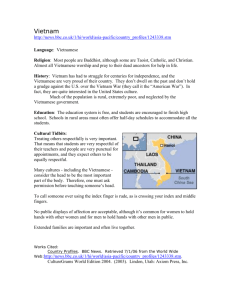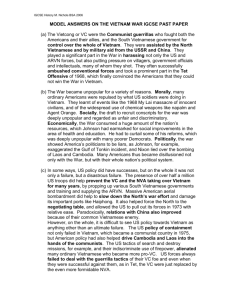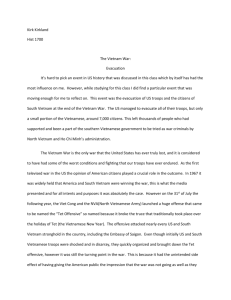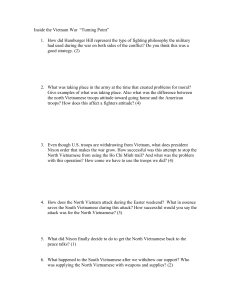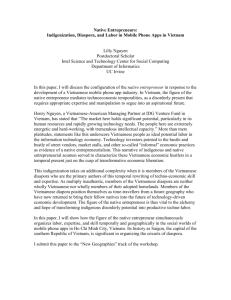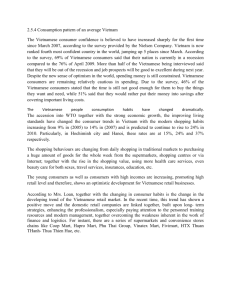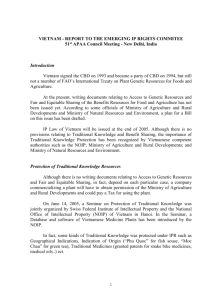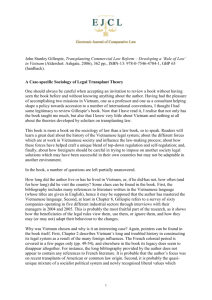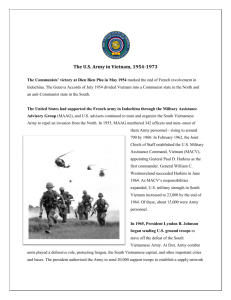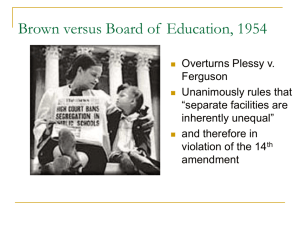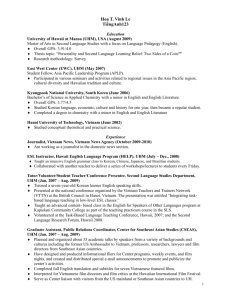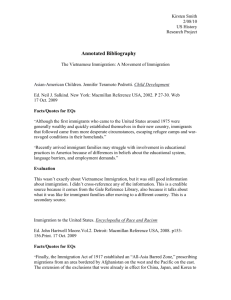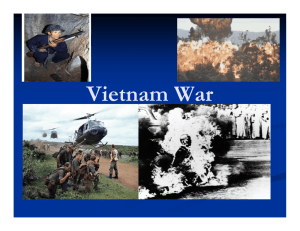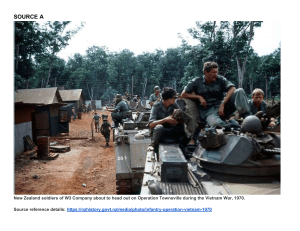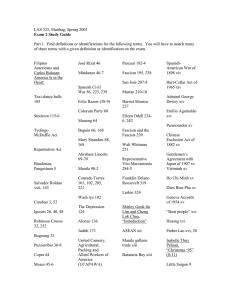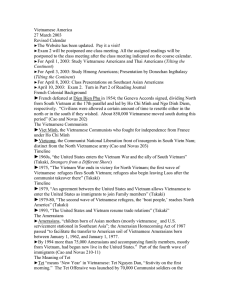Fact Sheet 7 - NZHistory.net.nz
advertisement
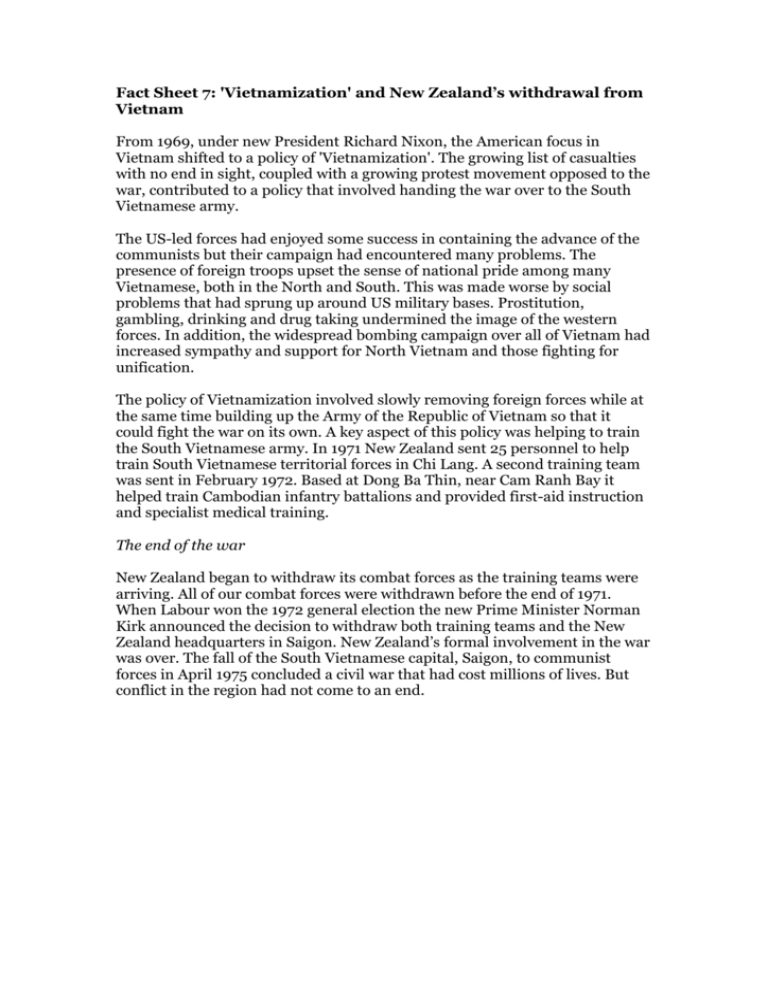
Fact Sheet 7: 'Vietnamization' and New Zealand’s withdrawal from Vietnam From 1969, under new President Richard Nixon, the American focus in Vietnam shifted to a policy of 'Vietnamization'. The growing list of casualties with no end in sight, coupled with a growing protest movement opposed to the war, contributed to a policy that involved handing the war over to the South Vietnamese army. The US-led forces had enjoyed some success in containing the advance of the communists but their campaign had encountered many problems. The presence of foreign troops upset the sense of national pride among many Vietnamese, both in the North and South. This was made worse by social problems that had sprung up around US military bases. Prostitution, gambling, drinking and drug taking undermined the image of the western forces. In addition, the widespread bombing campaign over all of Vietnam had increased sympathy and support for North Vietnam and those fighting for unification. The policy of Vietnamization involved slowly removing foreign forces while at the same time building up the Army of the Republic of Vietnam so that it could fight the war on its own. A key aspect of this policy was helping to train the South Vietnamese army. In 1971 New Zealand sent 25 personnel to help train South Vietnamese territorial forces in Chi Lang. A second training team was sent in February 1972. Based at Dong Ba Thin, near Cam Ranh Bay it helped train Cambodian infantry battalions and provided first-aid instruction and specialist medical training. The end of the war New Zealand began to withdraw its combat forces as the training teams were arriving. All of our combat forces were withdrawn before the end of 1971. When Labour won the 1972 general election the new Prime Minister Norman Kirk announced the decision to withdraw both training teams and the New Zealand headquarters in Saigon. New Zealand’s formal involvement in the war was over. The fall of the South Vietnamese capital, Saigon, to communist forces in April 1975 concluded a civil war that had cost millions of lives. But conflict in the region had not come to an end.
![vietnam[1].](http://s2.studylib.net/store/data/005329784_1-42b2e9fc4f7c73463c31fd4de82c4fa3-300x300.png)
